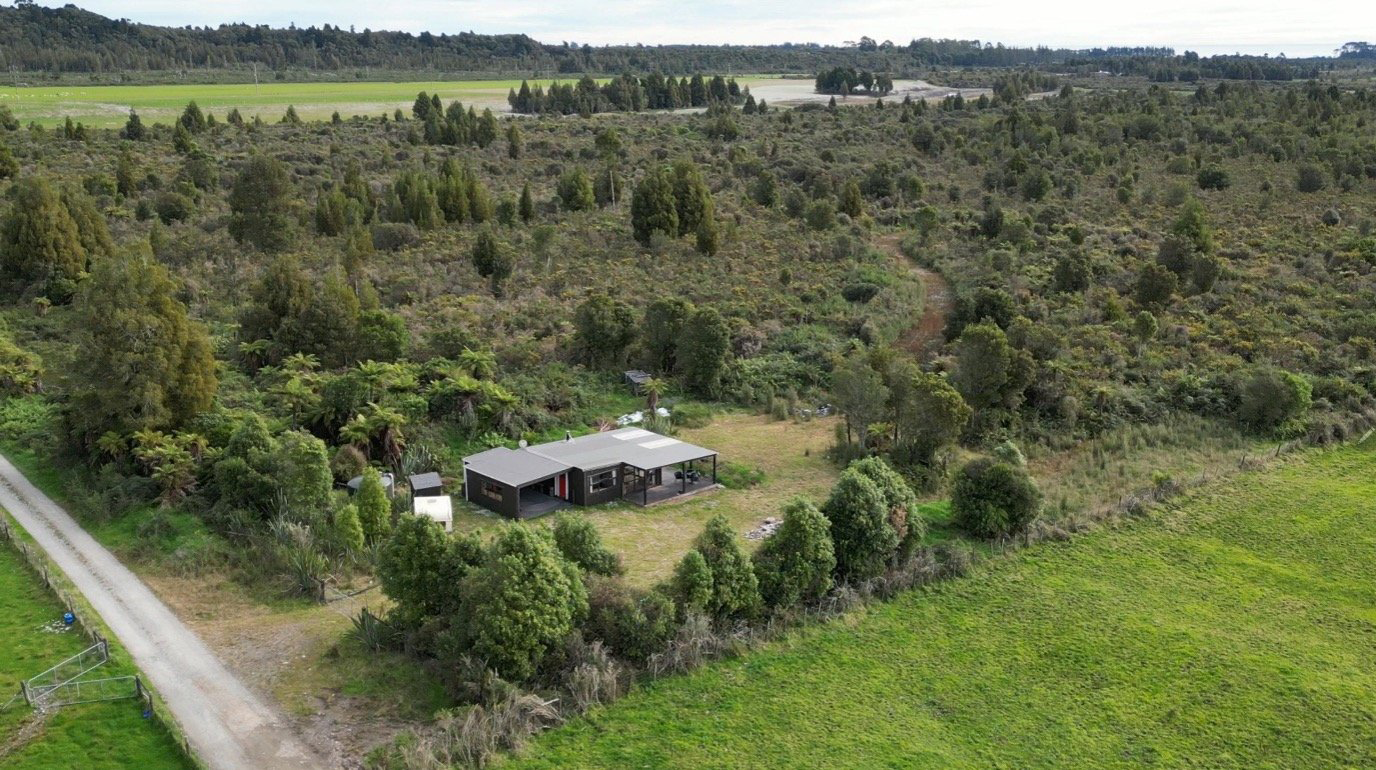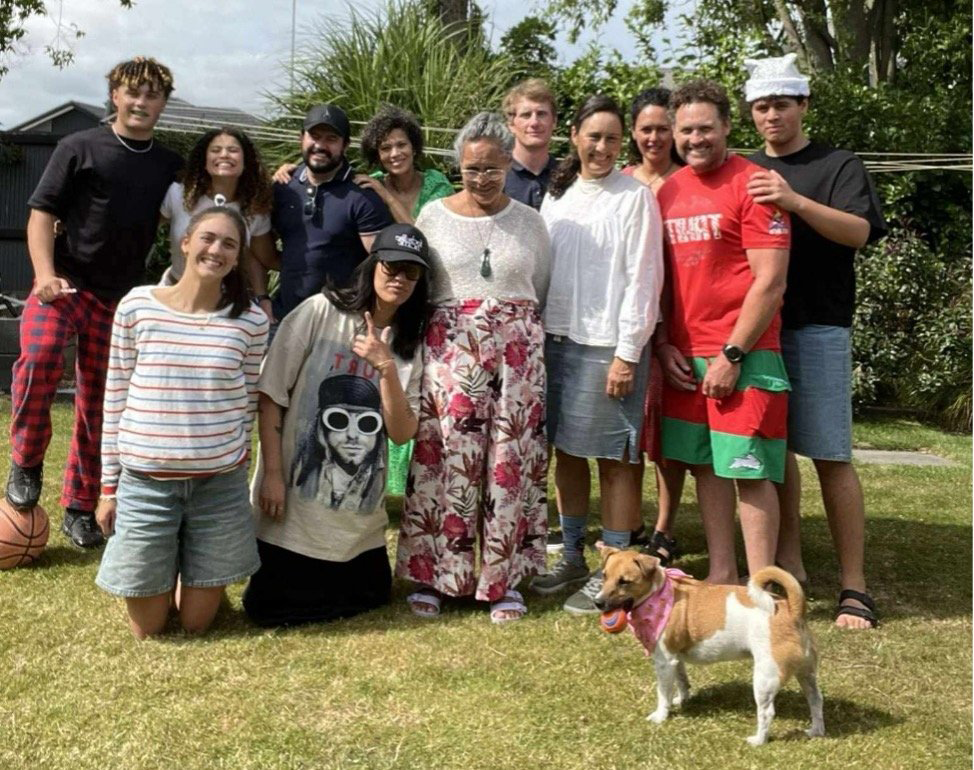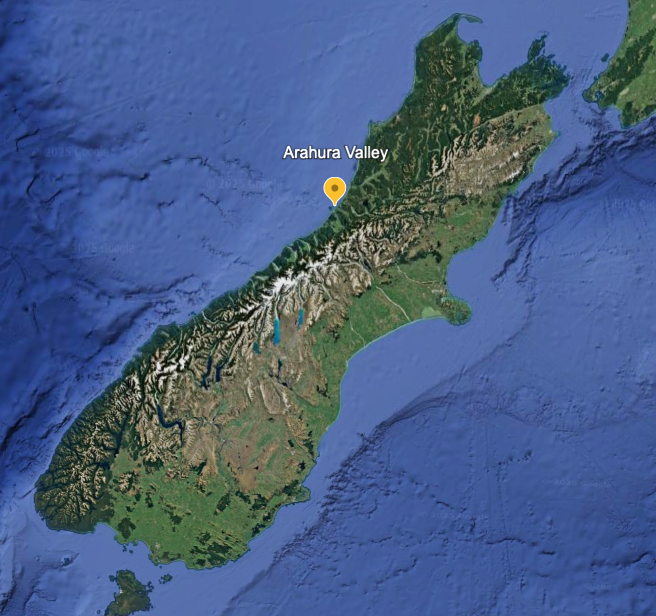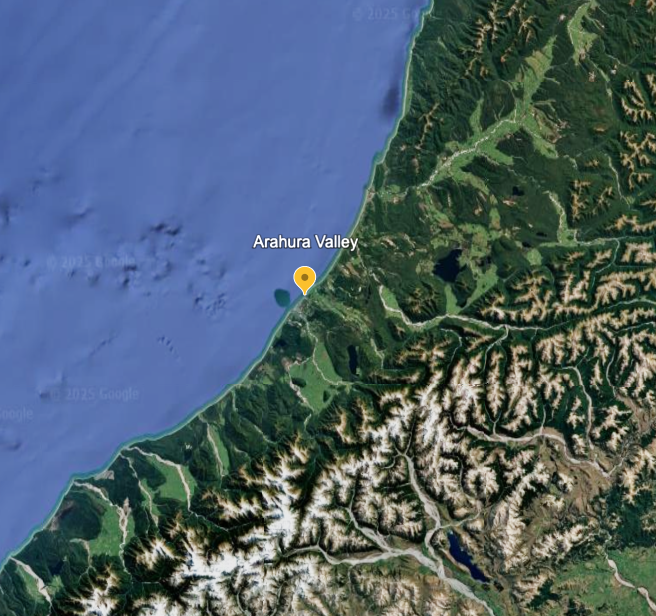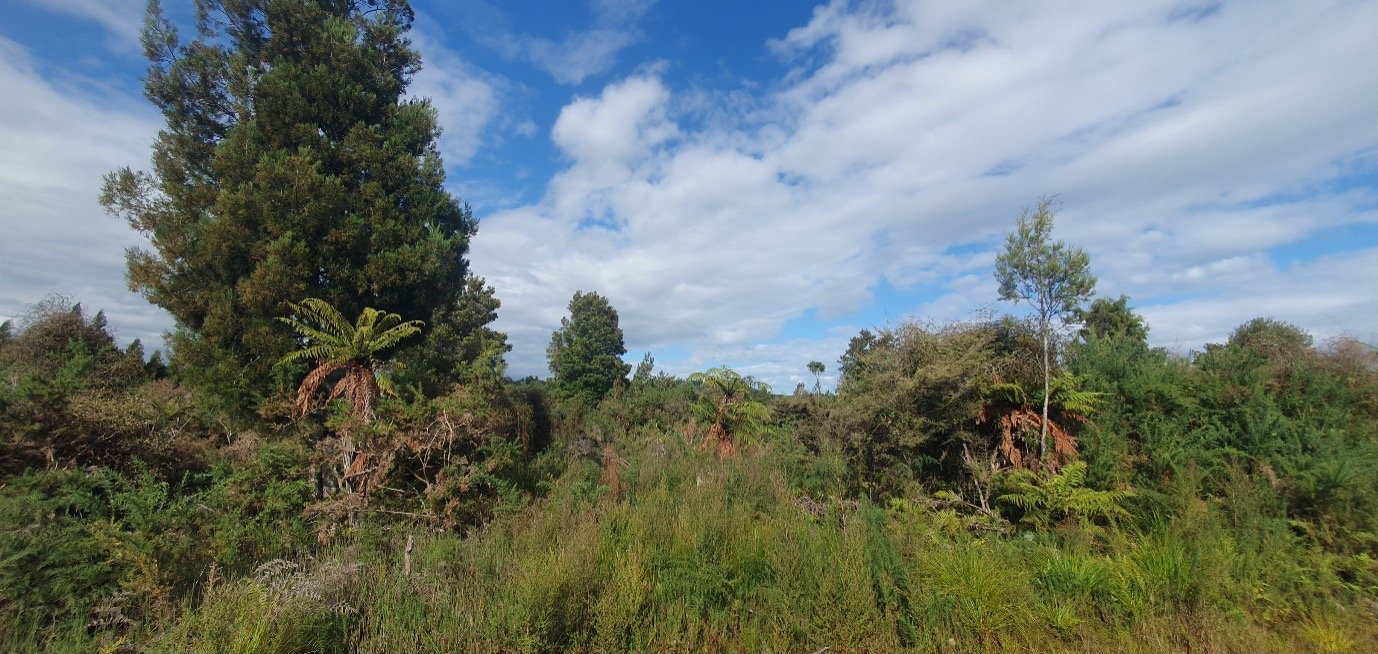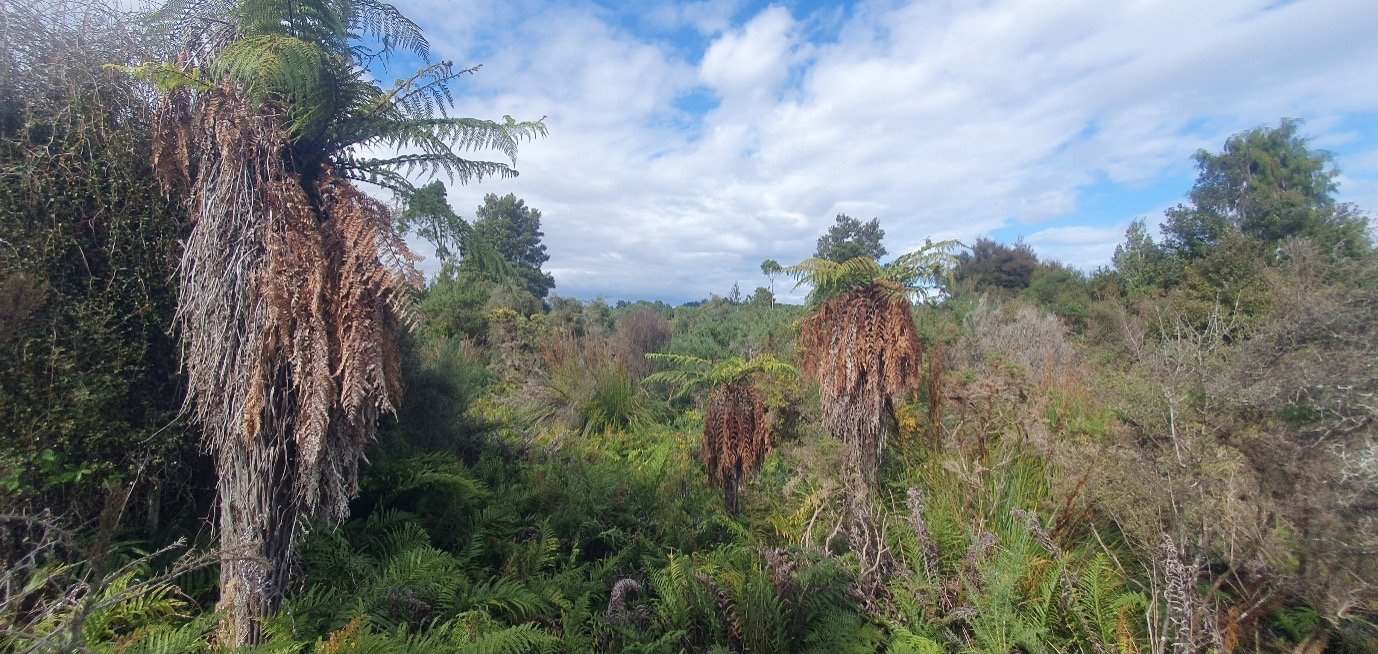
Waimea Reporoa Arahura Valley Project
Te Ngāhere -The Forest
Located in the Arahura Valley on the Tai Poutini / West Coast of Aotearoa New Zealand, the Waimea Reporoa Block is a whanau owned native forest, that has been steadily regenerating through gorse since the mid-1990s, when it was previously utilised for sphagnum moss collection. Surrounded by neighbouring farmland on 3 sides, the full block comprises of 34 ha (30 ha of which is registered forest) with various aged stands of kahikatea (Dacrycarpus dacrydioides) dominating. Other key species are whekī/tree fern (Dicksonia squarrosa), kānuka (Kunzea ericoides), mānuka (Leptospermum scoparium), horoeka/lancewood (Pseudopanax spp.), māpou (Myrsine australis), māhoe (Melicytus ramiflorus) and kamahi (Weinmannia racemosa). The name reporoa refers to the abundance of waterways and wetlands criss-crossing the block providing sort after habitat for treasured native birds and fish, including weka and inanga to name a few.
Te Tāngata -The People
The block is owned by a proud Poutini Ngāi Tahu whanau with generations of connection to the Arahura. Marlene and her daughters Janyne, Koha and Waitaiki, along with mokopuna Mihiroa, Meihana and Tainui are all from the local hapū Ngāti Waewae – kaitiaki of the taonga pounamu (greenstone) sourced from the Arahura River. The block was originally purchased by their Uncle Neville who put a small shed on it - now a whanau whare/bach - which helps them to continue to maintain their connection to the whenua. Watching the native forest growing through the acres of gorse across the block and knowing that it will help future generations of their people and local biodiversity is something the whanau values.
Located in the Arahura Valley on the Tai Poutini/West Coast of Aotearoa New Zealand.
Wāhi - The Location
Technical Stuff
The Waimea Reporoa Arahura Valley Project is being undertaken under the Permanent Forest Category of the New Zealand Emissions Trading Scheme. The project issues New Zealand Units (NZUs) based on New Zealand Government rules for carbon sequestration rates by indigenous forest.
Once the NZUs are sold to a carbon offset buyer, they are cancelled in the New Zealand Emissions Trading Registry so they cannot be used by (or sold to) anyone else.
Waimea Reporoa Arahura Valley Project
Project Name
34 ha
Project Area
Marlene Morrison
Project Owner
Landowner
Project Developer
West Coast, South Island, NZ
Project Location
Grazing stock land
Baseline Scenario
Permanent forest protection
Project Scenario
Afforestation/reforestation (A/R): Enhanced natural regeneration
Activity Type
Carbon sequestration; biodiversity conservation; water quality protection; climate resilience
Project Benefits
610 (NZUs)
Carbon Credits Issued
New Zealand Emissions Trading Scheme - Permanent Forest Category
Carbon Credit Standard
Ministry for Primary Industries
Verifier
Carbon Credit Registry
Credits available for Business Clients
Carbon Credit Status
Whāia Te Pūtea - Follow The Money
This special whanau land has been allowed to regenerate for 30 years. Situated alongside the Arahura river, the corresponding valley has had an extensive riparian programme, which the whanau are committed to adding a forest to for future generations to enjoy. The regenerating ngāhere will help rejuvenate multiple generations connected to the whenua. Deeply connected to the area as manawhenua, this whenua reaffirms and strengthens their relationship with the wider landscape.
Carbon credit revenue will go to sustaining the rejuvenation journey, including pest and weed control, forest monitoring, and the administration of the carbon project. It will also assist the whanau in maintaining the block and keeping their connection alive, while helping to transform the outcomes for the next generation of the whanau. Choosing to register the ngāhere and allowing it to regenerate has been a conscious decision to buck the trend of surrounding land and forfeit potential revenue from subdivision development and/or dairy conversion to create a living legacy.

